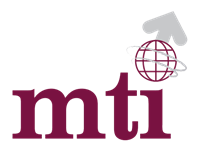This month the Ministry of Trade and Industry (MTI) under the strengthening of the Single Electronic Window (SEW) for Trade and Business Facilitation Programme, in partnership with the Ministry of Works and Transport (MOWT) began work to develop a National Maritime Policy and Strategy for Trinidad and Tobago. Over the years, the Government of Trinidad and Tobago has conducted various studies and consultations on the maritime sector. A review of these has highlighted, among other things, the absence of a formal maritime policy as a major institutional gap.
The International Maritime Organization (IMO) in its 2017 Member State Audit Scheme Report on Trinidad and Tobago also identified the deficiency and promoted the development of a Policy as part of a wider economic and transport plan. The IMO recommended that the policy address areas such as maritime transport, port policy, use of natural resources of seas and oceans, maritime training and education and protection of the environment.
In light of the above, a procurement exercise was undertaken and a consortium comprising the International Centre for Numerical Methods on Engineering (CIMME) in Partnership with CPCS (Canadian Pacific Consulting Services) and the Fisheries and Marine Institute of Memorial University of Newfoundland was engaged to assist the Government in developing a National Maritime Policy and Strategy.
The MTI and MOWT will work with this team of international consultants for a period of six (6) months to develop the new Policy and Strategy. Virtual consultations with key stakeholder commenced in February 2021 and will be ongoing to ensure that all stakeholders have the opportunity to provide comments and input into the drafting of the policy and strategy. Stakeholders will include persons involved in business development, yachting, port management, fishing, national security, regulation, environmental conservation and investment.
This new Policy and Strategy will provide public and private sector stakeholders with a national plan for the holistic development of the Maritime Industry. These include the identification of priority sectors for targeted development strategies and other interventions to be implemented to support growth and investment in each sector. Key sectors already identified for consideration include maritime transport, port operations, marine resource management, fisheries, ship repair and dry docking, transhipment, cold stacking, bunkering, yachting services, trade logistics and supply chain services and tourism.
The Policy and Strategy will be three dimensional, focusing on international, regional and national levels. It will have a specific focus on maximizing the sustainable use of Trinidad and Tobago’s ocean and sea resources, while enabling growth of the maritime economy through improving business competitiveness in the shipping industry and balancing safety and sector interest.
On completion, the new framework will guide and facilitate the Government’s developmental plans for the maritime sector and create a level of certainty to encourage private participation and improve the ease of doing business in the sector.
This project is one of several being implemented under the Strengthening of the Single Electronic Window for Trade and Business Facilitation Programme. Other projects aimed at improving the ease of doing business include Business Process Re-engineering, implementation of a Trade and Business Information Portal and Review of Legislation affecting trade and business.









